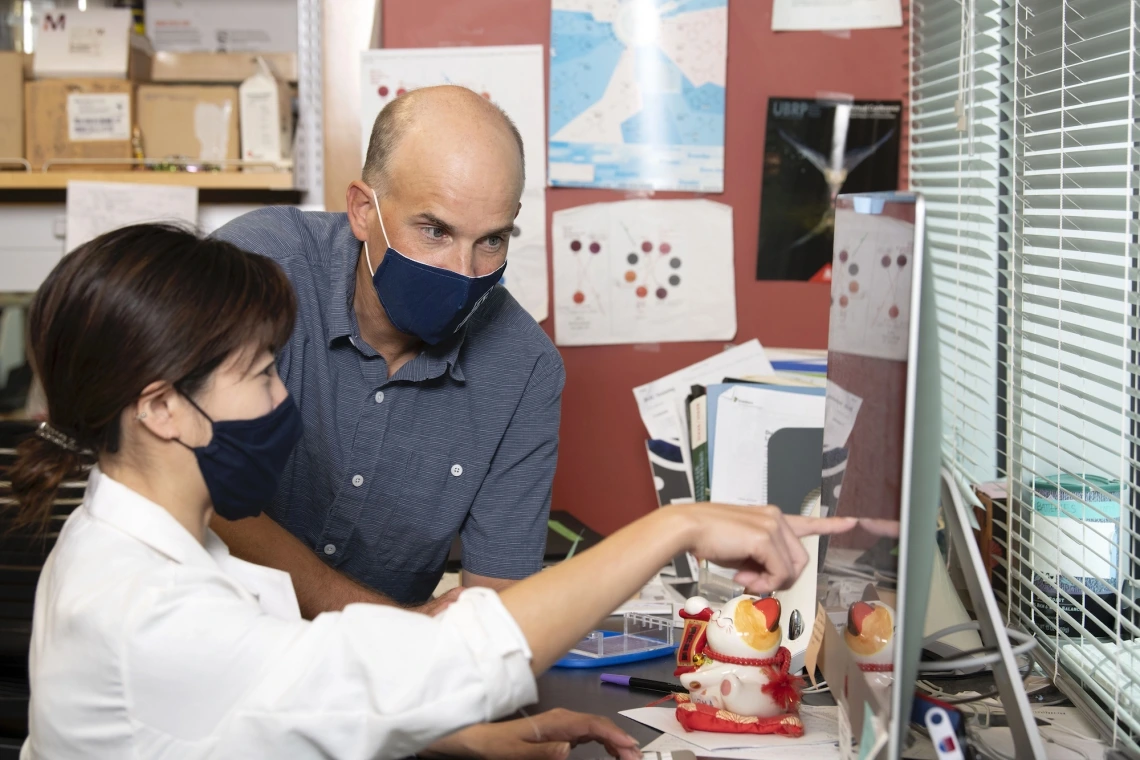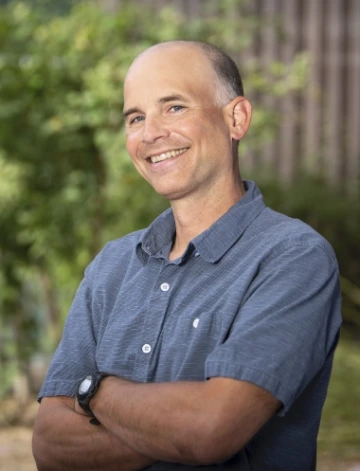The University of Arizona and Foundery Sign Master Agreement to Translate Novel Discoveries into Transformational Immunotherapies
Industry-academic partnership supports translational research and creates opportunities for impactful drug development.

Michael Kuhns, associate professor in the Department of Immunobiology, and Shio Kobayashi, a post-doctoral research fellow, study the basic science of T cell activation in the immune system, and they are using that knowledge to find potential therapies for autoimmune diseases.
Noelle Haro-Gomez/University of Arizona Health Sciences
TUCSON, AZ – The University of Arizona has entered into a master agreement with the biotechnology venture studio, Foundery, to facilitate translating immunology discoveries into drug candidates. Tech Launch Arizona (TLA), the unit of the university that commercializes inventions stemming from UArizona research and innovation, led partnership discussions designed to support research and create opportunities to develop and commercialize new immunotherapeutics.
“As we pursue our ultimate goal of generating impact from university research and improving lives through the innovations our research community is creating, this relationship with Foundery will be one more tool to help us maximize how quickly and effectively we’re able to bring those inventions to the world for the public good,” said Rakhi Gibbons, director of licensing and intellectual property for TLA.
Through the agreement, UArizona researchers are able to propose drug targets or concepts that might prove to be impactful in the identification, prevention or treatment of human diseases that stem from immune system dysfunction. Once a researcher proposes a target or concept, Foundery’s scientific team conducts further research on the concept validation and therapeutic potential, with the ultimate goal of transitioning preclinical drugs to the market via outlicensing to existing biopharmaceutical companies or a startup launched to take the innovation forward.
“Our goal is to be the bridge between innovators and industry partners,” said Max Krummel, Ph.D., Co-Founder and Managing Member at Foundery. “We’ve seen the high quality of research, discovery and innovation going on at the University of Arizona, so we want to help maximize the impact of that work to everyone’s benefit by bringing it to the world as quickly and effectively as possible.”
According to Dr. Krummel, first-in-class discoveries in the immunobiology space like those being developed at the College of Medicine – Tucson and the College of Medicine – Phoenix represent the prime candidates that will benefit from the program.
Harnessing T-cells to fight disease

Michael Kuhns
Noelle Haro-Gomez/University of Arizona Health Sciences
Michael Kuhns, associate professor in the College of Medicine – Tucson Department of Immunobiology and a member of the BIO5 Institute, has built his career studying T-cell activity and how these cells work in our immune systems to respond to disease. He and his students draw on an understanding of the mechanisms that have evolved to optimize T-cell activation.
“Nature has been experimenting with T-cell activation in many jawed vertebrate species over the last 435 million years,” he said.
They then apply that understanding, using T-cell activation as a blueprint for designing new biomimetic synthetic receptors or reagents that can be used to redirect T-cells to act against a particular diseased target, such as cancer cells.
“I look forward to being able to bring much more of our innovative work to Foundery for them to further explore the possibilities for impact,” he said. “Ultimately the most meaningful impact for our research lies in getting it out into the world where it can improve lives.”
Strategically Advancing Innovation
The program TLA has developed with Foundery is one of many in the pantheon of services the unit provides to the UArizona community to help maximize the social and economic impact of university research and innovation. From the I-Corps Program, which trains academic researchers on how to gather insights on customer discovery and product/market fit, to its Asset Development Program, which provides funding to advance early-stage inventions toward readiness for license.
University of Arizona researchers interest in learning more about the opportunities afforded by the Foundery master agreement or any other TLA programs for maximizing the impact of university research and innovation should contact the office at https://techlaunch.arizona.edu/contact.

